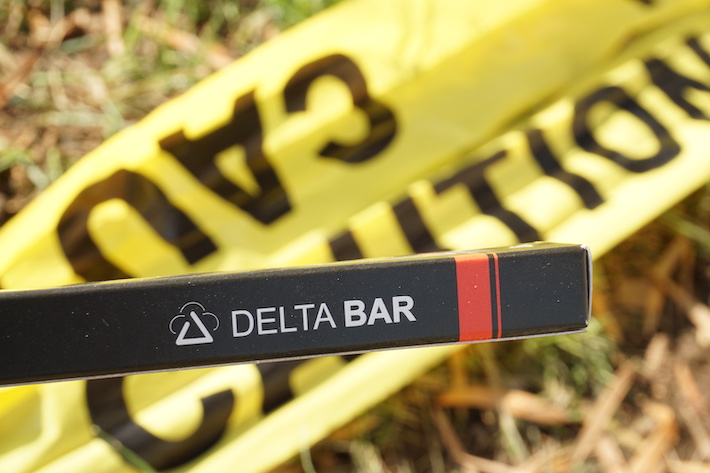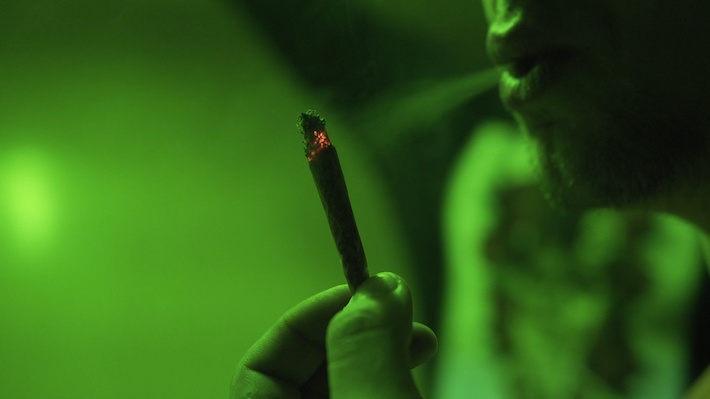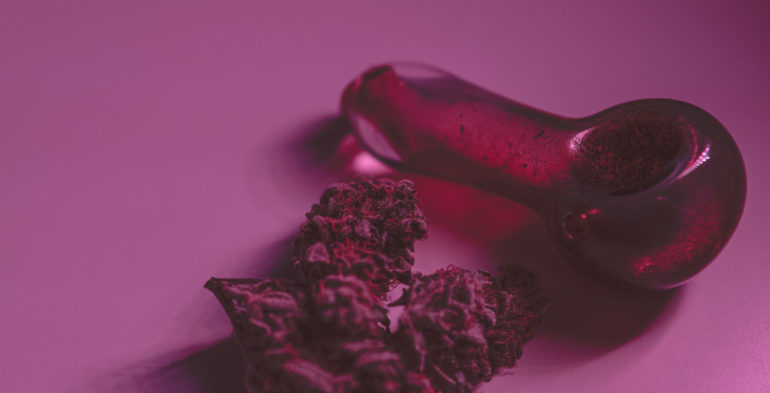Delta-8 THC is not legal in Nevada. Despite the state having legalized marijuana and delta-8 THC itself having a couple of years of quasi-legality from 2019 to 2021, the state has clarified its hemp law and in the process, classified delta-8 THC as a “synthetic cannabinoid.”
So while you can head down to a dispensary and freely pick up some marijuana, any delta-8 THC products that could ever be available in the state would have to be approved by the Cannabis Compliance Board before it could hit the shelves.
Here’s everything you need to know about delta-8 THC in Nevada.
Is Delta-8 THC Legal to Sell in Nevada?
No, delta-8 THC is not legal in Nevada. The state considers it a synthetic cannabinoid, alongside other THC isomers such as delta-7, delta-10, THC-O, THCP and HHC.
Nevada made essentially all delta-8 THC illegal with Senate Bill (SB) 49, which took effect on June 4th, 2021. This bill did two things to stop delta-8 THC: firstly, it redefined (Sec. 3.5/page 14) THC to include all THCs, and secondly, it defined synthetic cannabinoid (Sec. 1/page 2) to include anything produced artificially and made it illegal (Sec. 3.1/page 13) to produce, distribute or sell them in the state.
This combination of rules covers basically any hemp delta-8 THC product you could find. Even if the delta-8 THC had been produced naturally from hemp (you’d probably need multiple plants to get a high enough dose), anything over 0.3% total THC would make it cannabis again. In short, it’s unlikely that any delta-8 THC product on the market is allowed under Nevada’s laws.
It’s possible that the state’s Cannabis Compliance Board (CCB) would approve an adult-use product containing synthetically-derived delta-8 THC, but as a flyer released by the CCB in October 2022 points out, no such process has been approved to date. Even if it were, it could not be sold as hemp.
RELATED: Delta-8 THC Legality by State
Delta-8 THC Legislation Timeline for Nevada

Delta-8 THC was first legalized in Nevada after the passage of SB 209 in 2019, but was banned in 2021 by SB 49.
Nevada’s hemp program got started after the 2014 Farm Bill, with 2015’s SB 305 allowing higher education institutions and the state Department of Agriculture to grow hemp for research purposes. This bill had a more restrictive definition of hemp which likely wouldn’t have permitted delta-8 THC, and also didn’t allow growers to manufacture or sell hemp products. SB 396 expanded this a little in 2017, allowing hemp-seed sales and also letting medical marijuana dispensaries sell products made from hemp.
After the 2018 Farm Bill passed, hemp-derived delta-8 was legalized in Nevada through SB 209, which was signed into law on June 5th, 2019. This bill added the “all derivatives, extracts, cannabinoids, isomers, acids, salts and salts of isomers” section to the definition of hemp which strongly suggests delta-8 THC sourced from hemp is legal. It placed the Nevada Department of Health and Human Services in charge of testing and labeling of the now-permitted hemp-based products and commodities.
On June 4, 2021, Nevada Governor Steve Sisolak signed SB 49 into law, which banned the sale, distribution, production and promotion of “synthetic cannabinoids,” including delta-8. The bill makes it so that the term “THC” describes all tetrahydrocannabinols, including delta-8, delta-9, delta-10 and THC-O.
In other words, the combined quantity of all tetrahydrocannabinols in any given hemp-derived product cannot exceed 0.3%. Any higher than this and the state classifies it as marijuana, which can only be sold as part of the state’s adult-use cannabis program. Furthermore, the bill also prohibits the sale, distribution or production of all artificially produced cannabinoids, including delta-8 that’s been chemically synthesized from CBD.
Therefore, the sale, distribution, and production of hemp-derived delta-8 products are illegal under Nevada state law.
Can Delta-8 THC Be Added to Food?
Delta-8 THC cannot be added to food products by either Nevada or federal law. Since Nevada has yet to allow any delta-8 THC products since SB 49 and it isn’t allowed at the federal level, you cannot add delta-8 THC to food in the state.
Can You Buy Delta-8 in Nevada?
You cannot buy delta-8 THC products in Nevada. If any were to be sold in future, they would have to be approved by the CCB and would only be sold in cannabis dispensaries.
Delta-8 Alternatives You Can Legally Buy in Nevada
Like delta-8, Nevada prohibits all isomers of THC, including delta-10, THC-O, and HHC outside the state’s regulated marijuana program, meaning their use, possession, sale, distribution, and production is illegal under state law.
Are There Age Restrictions on Delta-8 THC Products?
Delta-8 THC products are basically banned in Nevada, so there is no age restriction as such. However, if any were approved, they would fall under the adult use law and only adults aged 21 or over would be able to buy or possess it.
Can You Consume Delta-8 THC in Public in Nevada?
Delta-8 THC is not allowed to be sold in Nevada, and at the very least, any commercial product would contain more than 0.3% total THC and be classed as marijuana. Marijuana, in turn, can only be consumed in private. This means that even if you were able to legally get delta-8 THC, it could only be taken in private.
Can You Drive Under the Influence of Delta-8 THC in Nevada?

No, it’s illegal to drive under the influence of delta-8 THC in Nevada.
Nevada’s law on driving while intoxicated states that (NRS484C.110(2)(a)) it is unlawful to drive while under the influence of a controlled substance, and delta-8 THC is a controlled substance.
For marijuana, the state has a maximum level of 2 ng of THC per ml of blood, or a limit of 5 ng/ml for THC’s metabolites. Delta-8 THC registers just like delta-9 THC on these tests, so if you’re over this limit – likely to be the case if you’ve used it that day, especially for regular users – you’ll be punished for driving while intoxicated.
RELATED: Does Delta-8 THC Show Up on a Drug Test?
Punishments in the first instance include a fine of between $400 and $1,000, between 2 days and 6 months in jail (or residential confinement) and you’ll have to pay for (and attend) a course on substance abuse disorders.
Can You Travel to Nevada With Delta-8?
No. Nevada considers all commercial hemp-derived delta-8 products (with more than 0.3% total THC) illegal controlled substances. You cannot fly into the state with delta-8 products in your possession, nor can you transport them via train, car, or bus.
Closing Thoughts: The Future for Delta-8 in Nevada
Nevada has already effectively controlled – for all practical purposes, banned – delta-8 THC, so no laws are currently pending related to it. Overall, it’s unlikely that the CCB will approve a process for manufacturing delta-8 THC, and so it will remain illegal for some time in the state.
The positive news, if you’re in Nevada and want to enjoy THC, is that delta-9 THC is widely available throughout the state for all adults aged 21 or over. Delta-8 THC may be banned, but marijuana is legal, and subject to enough regulation that you can be sure you’re getting exactly what you pay for.
